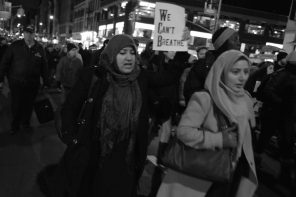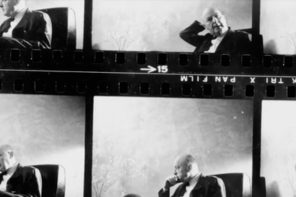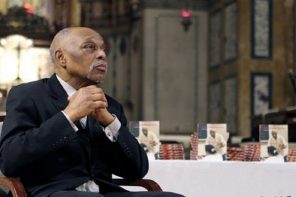I must admit, I was pretty excited when I heard about God in America. My husband and I are big PBS fans, enjoying especially The American Experience and Frontline, the PBS program units that co-produced the series. And I am convinced that ignorance of US religious history underpins some of the most serious problems the country currently faces. So I tuned in with considerable enthusiasm when WNET broadcast the series here in New York last week.
I did okay with the opening sequence, in which the Pueblo Indians throw off religious oppression by Franciscan priests in Spanish California. I should perhaps admit upfront that I am a “practicing Catholic” of a distinct sort: my grandparents, on one side, and great-grandparents on the other, were poor Irish immigrants. I inherited from them my perspective on US religious history. I cannot deny, though, that many Christians from Europe, Catholics included, treated the native peoples abominably.
As God in America proceeded, however, I became increasingly annoyed. We moved from the Franciscans to the Puritans, with John Winthrop ostensibly treating Anne Hutchinson as badly as the Franciscans had the Pueblos. But it seems there were no indigenous people at all in New England in those days; or else they and the Puritans got on extremely well.
Gradually, the subtext of the series emerged: American Protestants—mostly white ones—have struggled heroically throughout history to achieve religious freedom in the United States. Thomas Jefferson and the Baptists in Virginia. The Great Awakening. Methodist abolitionists. Lincoln’s conversion to emancipation as God’s will. Throwing off literalist interpretation of the Bible. The Scopes trial. Dwight Eisenhower, Billy Graham, the Civil Rights Movement (a reprieve from the mostly-white scenario), Ronald Reagan, Jerry Falwell, George W. Bush. Even the series’ intermittent acknowledgment of religious others underlined Protestant hegemony (despite the occasional apology), for example, Archbishop John Hughes’ failure to get the King James Bible out of the public schools and the liberalization—not to say Protestantization—of Judaism by Rabbi Isaac Meyer Wise and his Reform movement.
Women Sidelined?
But what, you may ask, could the producers do? The United States, throughout its history, really has been a “pan-Protestant” nation. Surely Lincoln is one of the most significant figures in US history; how to avoid devoting the longest segment in the series to him? Likewise the Puritans, the undeniably Baptist leader of the Civil Rights movement, the evangelical resurgence around Ronald Reagan?
But even if I were to concede this point I’d still have a bone to pick with God in America. For the series is not just a dramatic retelling of the history of American religion. It’s a documentary. Even as it narrates the story of “God in America,” it introduces many historians, scholars of religion, ministers, rabbis, priests, and witnesses who comment on that story. And here we encounter the series’ second serious problem: the vast majority of commentators in God in America are men. Five men to every woman, I’d wager, but then, in most cases, each man separately comments a good deal more than each woman.
And when you add race to the mix, things get even dicier. Aside from those in the segment on Civil Rights, there are few black male commentators in God in America, while black women are almost nonexistent. (Thank heaven for the occasional appearance of Margaret Washington, the African American historian from Cornell). Perhaps the producers’ odd notion that members of particular racial or religious groups should for the most part comment only on their own group explains this imbalance: in a series primarily addressing the history of white male Protestantism in America, I guess you’re going to be hearing from white males. I was also frustrated by the decision to limit discussion, in the segment on Archbishop John Hughes of New York, to four white Catholic men, three of them priests. As if Catholic women aren’t sidelined quite enough by our own church, now we’ve got the secular media following suit.
Once again, readers may disagree. After all, God in America isn’t an affirmative action program. Perhaps the white men the producers interviewed just offered the more illuminating insights. Or their voices sounded better. Or there are so few black, Hispanic, and Asian, or white female scholars of American religion they had no alternative.
In closing, I am reminded of a term introduced back in the nineties by the brilliant feminist philosopher of science, Donna Haraway: “the God trick.” When the people who are in power speak of God, they invariably make him (I use that pronoun advisedly here) resemble themselves. So I ask you: exactly whose God is “God in America”?




